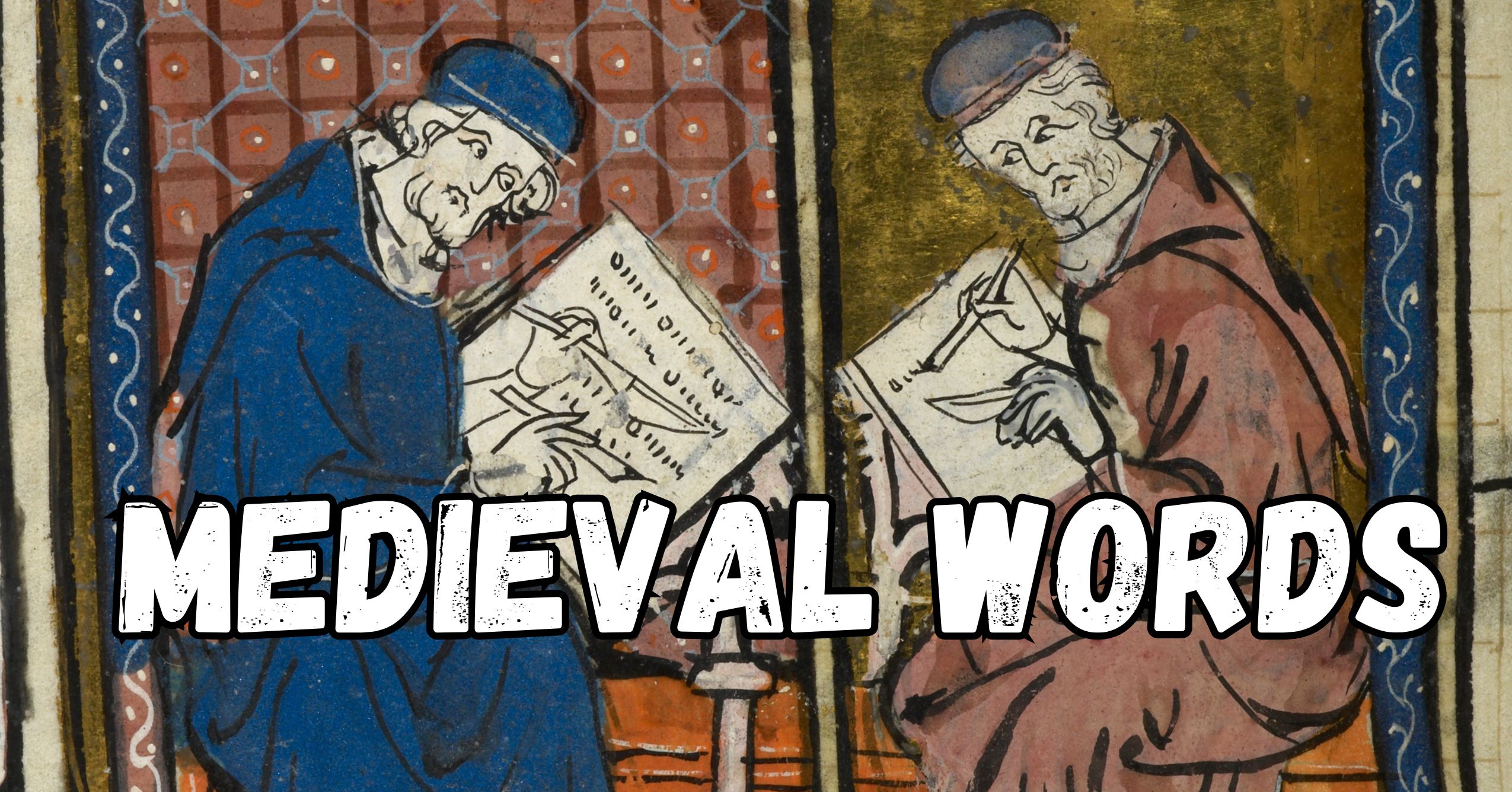
"The word medieval comes from the Latin medium aevum, meaning "the middle ages." It did not appear in English until the nineteenth century, adapted from the earlier Latin and French forms mediæval and médiéval. Scholars coined it to describe the period between ancient and modern history, dividing the past into three great eras. At first, medieval carried the dismissive overtones of a "middle" or lesser age, but over time it became the familiar, neutral term we use today."
"The word castle comes from the Latin castellum, a diminutive of castrum, meaning "fort" or "military camp." It passed into Old French as castel and entered English after the Norman Conquest, gradually replacing the Old English burh (fortified place). In medieval Latin and French, castellum referred broadly to any fortification, but in English the word took on a more specific sense: the fortified residence of a lord."
Many familiar medieval words originate in older languages and changed meaning over time. Some terms were used by medieval people while others were coined later to categorize the period. Medieval derives from Latin medium aevum and entered English in the nineteenth century via Latin and French forms, initially implying a lesser "middle" age before becoming neutral. Castle comes from Latin castellum (diminutive of castrum), moved through Old French castel into English after the Norman Conquest, and shifted from general fortification to the lordly fortified residence evoking defence and display. Monastery derives from Greek monastērion, from monazein, meaning "to live alone," used for hermits and monks and adopted into Latin as monasterium.
Read at Medievalists.net
Unable to calculate read time
Collection
[
|
...
]